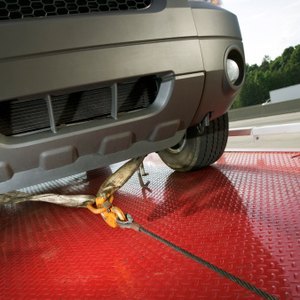
Are you in that place in your life where you are forced to ask, “Will Capital One repossess my car?” Or you may be asking, “How long before the bank repos a car?” It’s quite unfortunate.
You never want to leave your house, keys in hand, only to discover that your car is no longer sitting where you parked it the night before. For many consumers who miss a car payment or two – intending to catch up on payments when they can – this scenario is a sad reality.
Unfortunately, the hardship doesn’t always stop with the repossession itself. If you took out an auto loan with Capital One, you could find yourself facing a wage garnishment order not long after losing your vehicle.
Read More: What Is Car Repossession?
Capital One Auto Repossession
While Capital One is a household name in the credit card industry, the bank corporation offers other financial services, such as auto loans, to consumers. The loans are easily available via the capital one auto finance app. However, Capital One will aggressively pursue borrowers who take out vehicle loans and stop making payments.
If you hold an auto loan with the company, you can expect the company to contact you via the official Capital One auto finance phone number and by mail as soon as you miss your first payment. If you stop making payments on your auto loan altogether, Capital One will repossess your car.
But it would be best if you tried to qualify for the Capital One auto hardship program first. It may save you from financial trouble later on.
Read More: The Effects of Car Repossession
Instances of Loan Deficiency
You can get your vehicle back by paying Capital One the remainder of the balance you owe in addition to any fees the company incurred repossessing the vehicle. If you do not wish to or cannot afford to redeem the vehicle, Capital One will sell it – typically at an auction.
If the amount the company receives through the auction of Capital One repo cars for sale meets or exceeds your auto loan balance and any repossession fees you owe, your dealings with your lender are complete.
If, however, Capital One sells the car for less than you owe, it will notify you of the new balance and demand that you pay off the difference – often referred to as the "deficiency." Even though you no longer have the car, you are still legally responsible for any loan deficiency that remains after the sale.
Effects of Wage Garnishment
If you do not make arrangements with Capital One to pay off your remaining debt, the company has the right to sue you. If Capital One wins the lawsuit, it can request that the court issue your employer an order requiring him to garnish your wages.
Federal garnishment laws dictate that a commercial creditor, such as Capital One, can garnish no more than 25 percent of your pay or the amount you receive in excess of 30 times the minimum wage each week.
Read More: What Are the Various Types of Liens?
Wage Garnishment Limitations
Although Capital One’s headquarters are in Virginia, the company must abide by the laws in each debtor’s state when recovering post-repossession debt. Four states – North Carolina, South Carolina, Texas and Pennsylvania -- do not allow commercial creditors to garnish residents’ wages.
If you live in one of the four states that prohibit wage garnishment, that does not mean Capital One cannot still collect the debt you owe by force. If the company cannot garnish your wages, it has the option to freeze and levy your bank accounts or attach liens to your home or other personal property.
Read More: How to Handle a Bank Levy
References
Writer Bio
Ciele Edwards holds a Bachelor of Arts in English and has been a consumer advocate and credit specialist for more than 10 years. She currently works in the real-estate industry as a consumer credit and debt specialist. Edwards has experience working with collections, liens, judgments, bankruptcies, loans and credit law.

